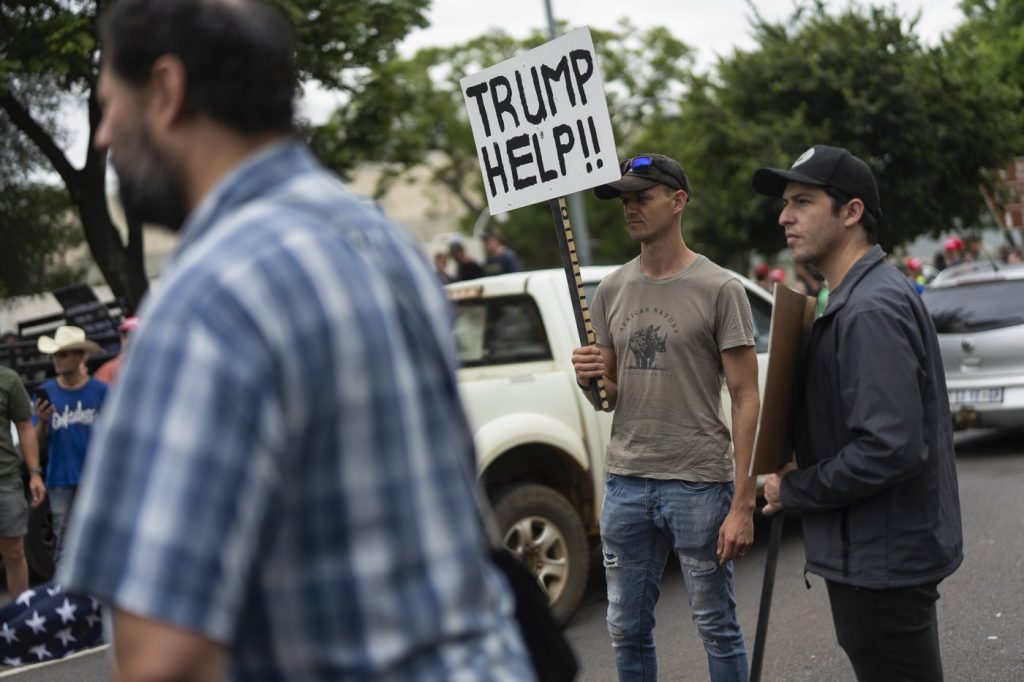The Episcopal Church's migration service has made headlines by rejecting a directive from the U.S. federal government to assist in the resettlement of white South Africans who have been granted refugee status. This decision was announced by Presiding Bishop Sean Rowe on a Monday, following the departure of 49 South Africans bound for new lives in the United States. Rowe emphasized the church's long-standing commitment to racial justice and reconciliation as the basis for halting its partnership with the government, which has been in place for decades.
In a controversial move, President Donald Trump had issued a fast-tracked refugee status for white South Africans, claiming that their government was discriminating against them. This action was taken even as Trump's administration simultaneously shuttered the overall U.S. refugee program. This allowed the South Africans to leapfrog over thousands of refugees who had been waiting for years under a standard vetting process.
Episcopal Migration Ministries, which has historically resettled refugees with the help of federal grants, was informed about two weeks prior to Rowe's announcement that the government expected the ministry to facilitate the resettlement of some of these South Africans. Rowe remarked that the church could not comply with this directive due to its mission and historical ties to the Anglican Church of Southern Africa. Consequently, he stated that by the end of the federal fiscal year, the church would terminate its refugee resettlement grant agreements with the federal government.
Another faith-based organization, Church World Service (CWS), indicated it remains open to helping resettle the Afrikaners. Nonetheless, the CWS also expressed concern regarding the preferential treatment being granted to one group of refugees over others who have been enduring prolonged waiting periods in refugee camps or perilous situations.
South Africa’s government has fiercely denied allegations of discrimination against its white minority, which adds another layer of complexity to the situation. Rowe expressed his distress over the preferential treatment of a select group of refugees, noting that many deserving refugees, including those who had served alongside the U.S. military in Iraq and Afghanistan, were being denied entry into the U.S. He lamented that many of these individuals are now facing threats due to their service to America, while others, including Christians fleeing religious persecution, are also being left out.
In light of this development, Rowe suggested that the church would redirect its efforts to serve immigrants already in the U.S. as well as those stranded overseas. This decision results in the cessation of a partnership that has facilitated the resettlement of nearly 110,000 refugees from various countries, including Ukraine, Myanmar, and Congo, over the last four decades.
This recent friction is not the first instance of tension between the Episcopal Church and the federal government. In a previous incident, Bishop Mariann Budde of Washington attracted Trump's ire during an inaugural prayer service, where she called for mercy towards marginalized groups, including immigrants and LGBTQ+ children.
The Anglican Church of Southern Africa includes various churches in South Africa and neighboring countries, having played a significant role in opposing apartheid during the late 20th century. Famous among its leaders was the late Archbishop Desmond Tutu, who was awarded the Nobel Peace Prize in 1984 for his contributions to the anti-apartheid movement.
In summary, the Episcopal Church's stance strongly reflects its commitment to racial justice and a history of advocacy that extends beyond the immediate political landscape. While CWS has expressed willingness to support Afrikaners, they have also criticized the selective process of resettlement under the current administration, underscoring the need for a more equitable approach to the refugee crisis.










